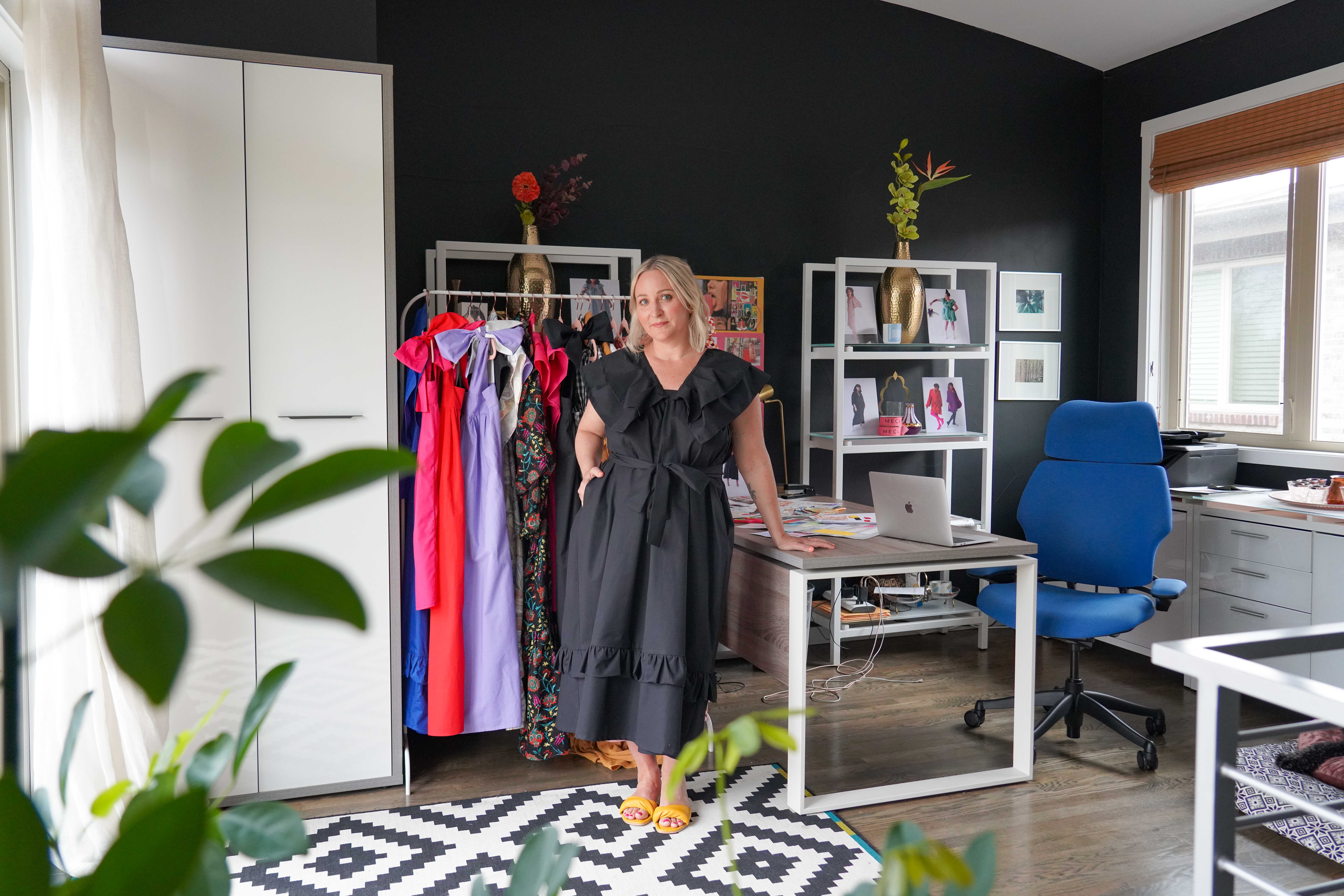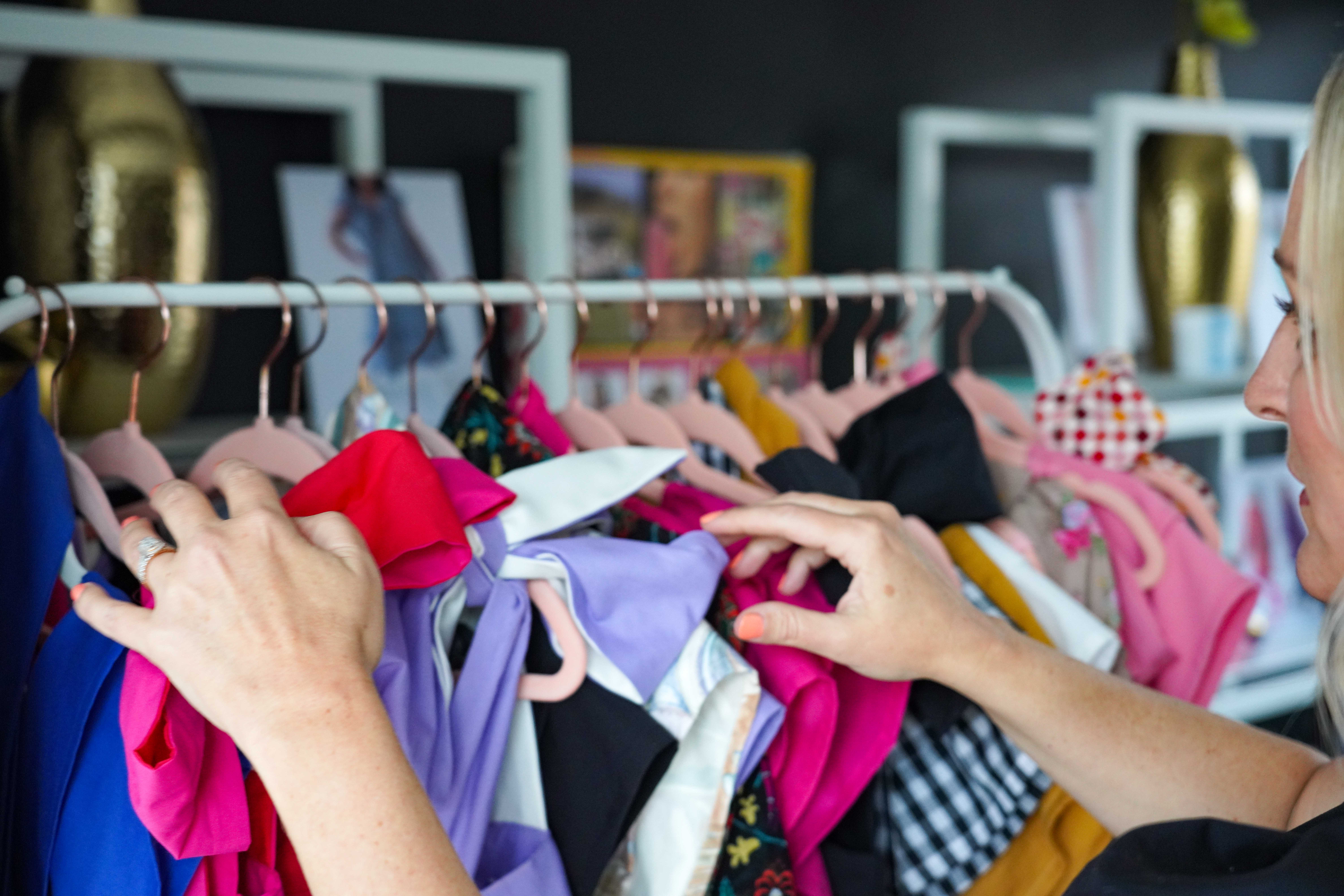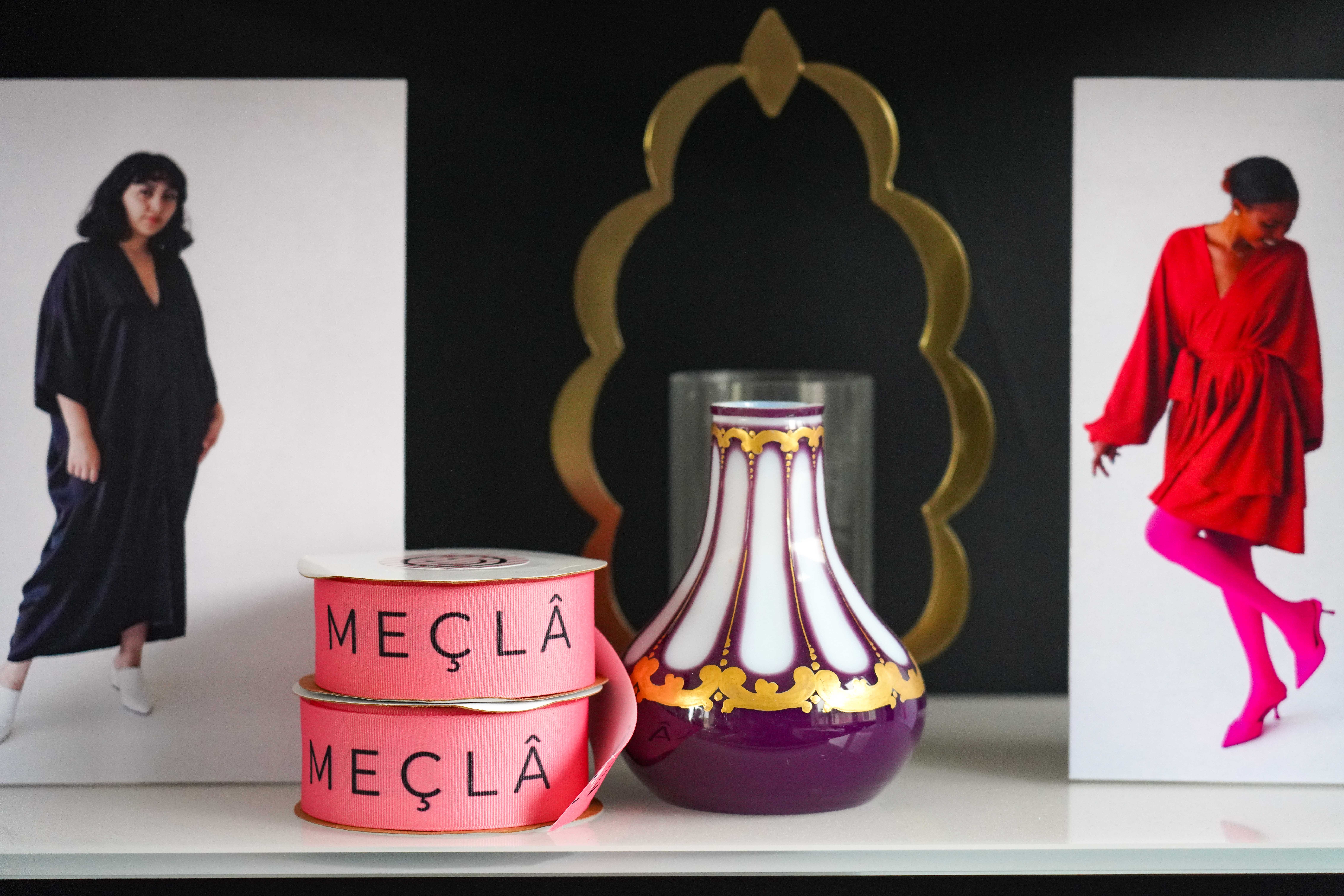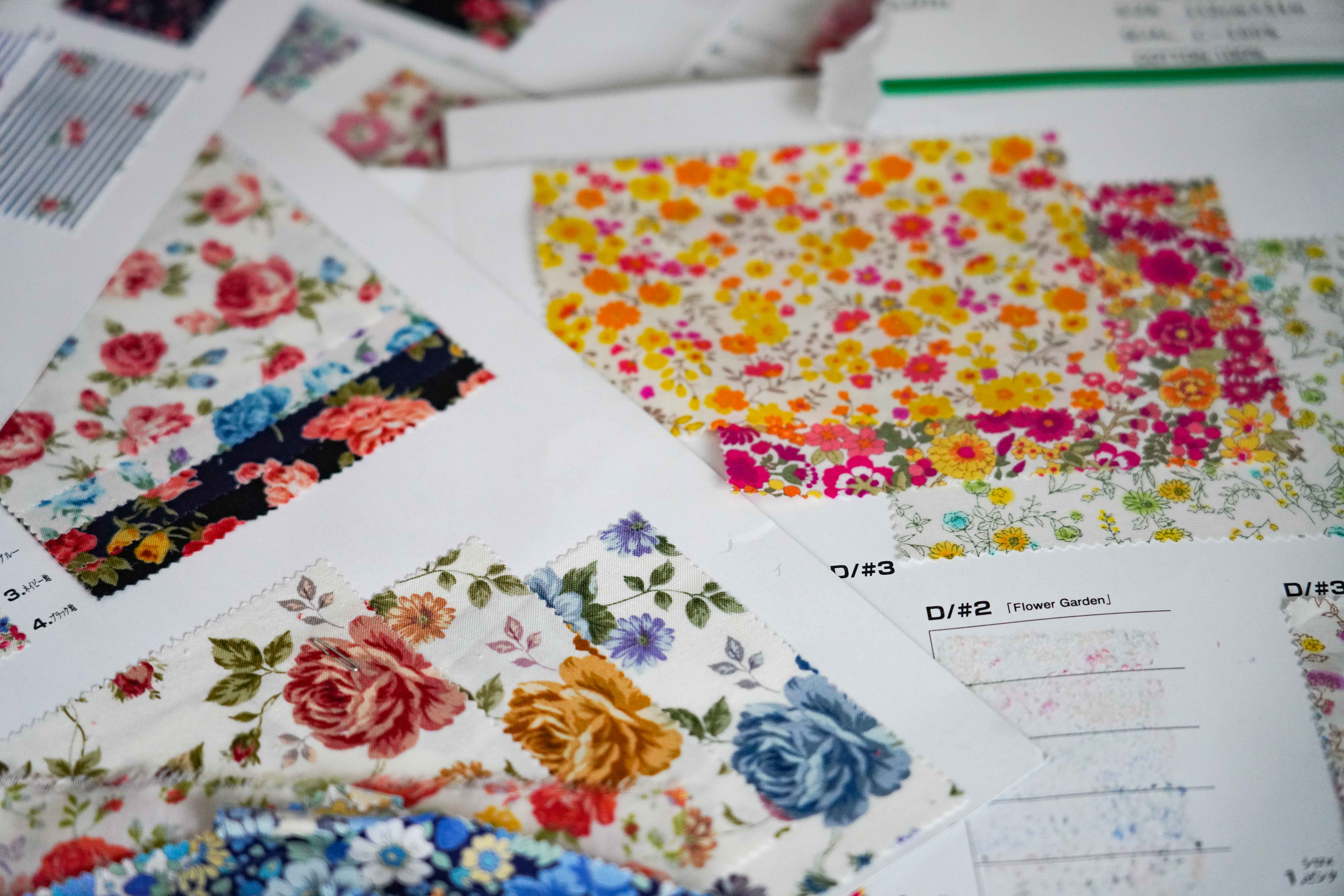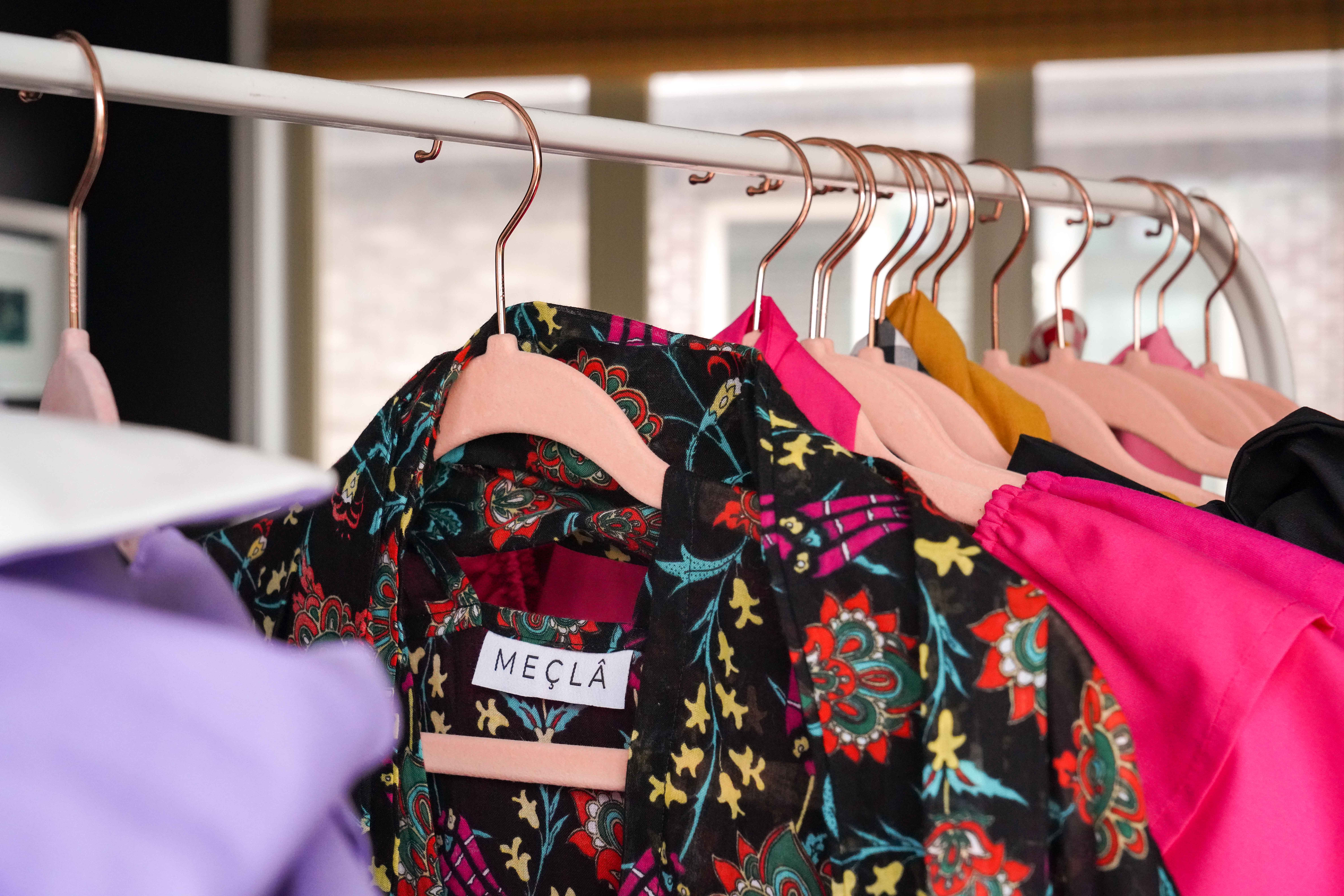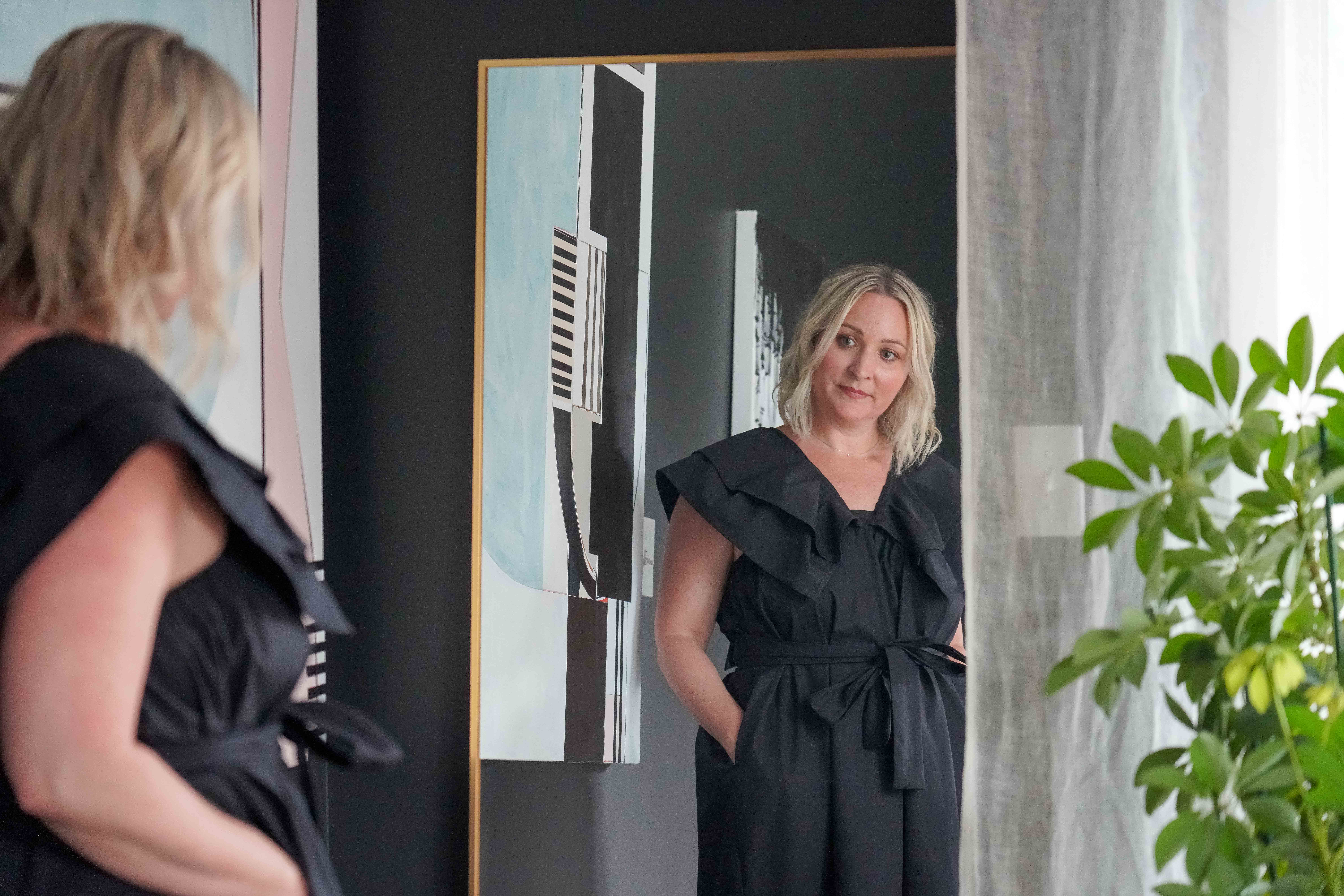Instead of conforming to the standards of the fast fashion industry, fashion designer Meçlâ Soyer-Kaplan is changing the narrative with her slow fashion business. Her ebullient designs and ethical convictions have led to her truly imaginative brand, Meçlâ, which is locally made and produced in Denver.
Bold Beginnings
Soyer-Kaplan learned a lot from her time working in various facets of the fashion industry. After earning her fashion degree at the University of North Carolina Greensboro, she moved to New York City to work in the buying office of Barneys New York. In this position, she grasped the systems important to running a business.
From there, Soyer-Kaplan found herself in Denver, working in retail management and merchandising. At the time, Denver’s fashion community was small but just beginning to grow, which she noted was exciting to watch happen.
“It’s really diverse,” Soyer-Kaplan said about the Denver fashion community. “And the community is very supportive of each other.”
After a brief stint as a stylist in L.A., Soyer-Kaplan returned to Denver and decided it was finally time to start her own business. Her first entrepreneurial endeavor was an after-school program in which she taught kids fashion design. She then went on to create the brand Slow Soul Life, which was later rebranded into Meçlâ. From the beginning, Meçlâ was always going to be founded on ethical and sustainable values.
“To be honest, I knew that if I was going to create a line, it would have to be that,” Soyer-Kaplan said. “I would never support unethical working conditions or want to overproduce things.”
Soyer-Kaplan’s eponymous brand launched amid the pandemic. Despite the ups and downs of running a business during that time, her fresh designs caught the eyes of customers. She started out with the Nina style, a comfortable and flowy kaftan-style dress. With the rising popularity of house dresses during the pandemic, the Nina dress arrived just in time.
“I was pumping out Nina dresses from my living room. For the most part, in the first year it was the Nina dress that started my business,” Soyer-Kaplan said.
Designing Slow Fashion
Similar to her philosophy on slow fashion, Soyer-Kaplan’s design process is also all about taking her time. She allows her creativity to spark naturally instead of forcing it – waiting until something feels truly special before moving it into production.
“Creating a story is what I’m interested in,” Soyer-Kaplan said about her design process. “Then I love to see how it relates to people.”
Soyer-Kaplan is a creative individual who designs for other artistic innovators. She understands that creative entrepreneurs need clothing that allows free movement while also being stylish. Because of this, movement is an important element factored into her designs. Many of her dresses have simple, loose-fitting silhouettes.
“When I think about the people who wear my clothes and their lifestyles, I think that’s kind of why they buy it. It’s cute but still comfortable,” Soyer-Kaplan said.
Along with movement, versatility is an essential element of the Meçlâ brand. From the Rosa dress to the Bow dress, Soyer-Kaplan’s designs are mostly one size fits all and wearable by a range of body types.
“There are so many ways to wear the dresses that a lot of different bodies will fit into,” Soyer-Kaplan said.
Sustainable and Ethical Production
Now, Soyer-Kaplan designs and produces the first sample of her garments and then passes it over to her friend and fellow designer, Mimi Shim. Shim works on the pattern-creation, sizing and production aspects of the made-to-order process.
“We built that trust and have been working together for about a year now. I value great working relationships, which goes into the ethical values of my business,” Soyer-Kaplan said.
From there, Soyer-Kaplan focuses her energy on the sales and marketing side of the business. As a lifelong learner, she is currently taking a course to learn more about digital marketing. She also collaborates with another community creator, Vanessa Barcus of Talisman Jewelry, to produce photo content for both of their businesses. For photoshoots, they’ve had models wear Soyer-Kaplan’s dresses and Barcus’ fine jewelry.
The made-to-order process helps prevent Meçlâ from overproducing and overbuying. By keeping inventory low, Soyer-Kaplan avoids wasting materials she won’t need for her business. She has sourced her fabrics from a fair trade production company in Turkey, connecting her business to her Turkish heritage, as well as from a deadstock fabric warehouse in L.A.
“It’s unbelievable how full it [the warehouse] is of people’s discarded fabric,” Soyer-Kaplan said. “It’s mostly from big businesses who overproduce or find the fabric is slightly flawed.”
Another perk to the made-to-order business model is that Soyer-Kaplan gets to communicate with her customers about the production process, which creates a more personal relationship between designer and buyer.
“It brings a human element back to fashion because this dress is being made for you,” Soyer-Kaplan said.
After an order is made, it typically takes around two weeks for customers to receive their pieces. Contrary to the nature of fast fashion, this process requires customers to evaluate their purchase and whether or not they’re willing to wait for it.
“I’m all about thinking about your purchases before you make them,” Soyer Kaplan said.
Less Is Always More
As her business continues to grow, her goal is to keep it slow, simple and of course, stylish.
For now, dresses introduced on her website will be new twists on classic Meçlâ styles using different fabrics. For example, the Milly dress, a current favorite amongst customers, is currently available in different fabrics, including classic black, bubblegum pink and a playful multi-checkered pattern. It can also be styled in many different ways throughout the seasons, making it a potential statement piece for summer or winter.
“The thing I like about slow fashion is the simplicity of it. You could get so lost in overproducing and creating ten styles five times per year,” Soyer-Kaplan said.
As a seasoned veteran of the fashion industry, Soyer-Kaplan acknowledges how far we’ve come and how far we still have to go when it comes to ethical and sustainable fashion practices. She encourages people to focus on tangible ways they can change their fashion habits.
When thinking about what she hopes to see in the fashion industry moving forward, Soyer-Kaplan said, “Make less. Buy less. If every person just bought less and made less, it would make a huge difference.”
All photography by Shelby Moeller.





